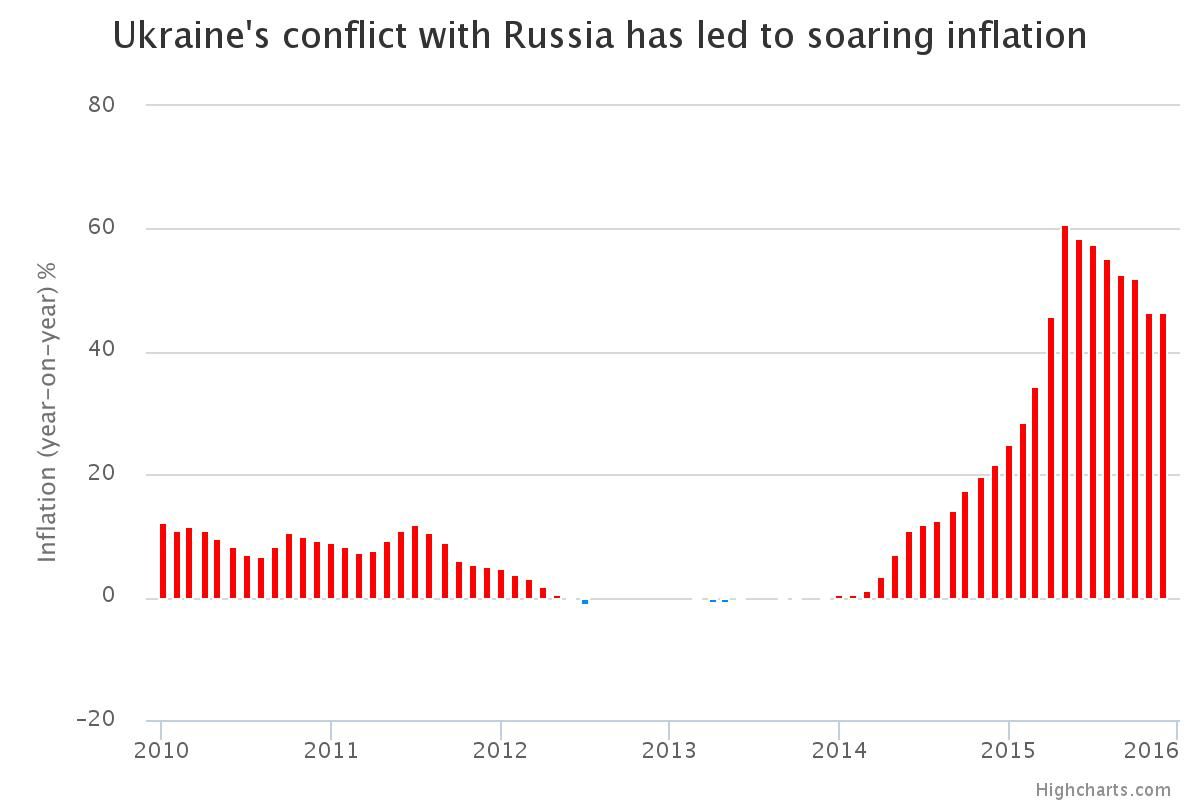Activists wave Ukrainian and European Union flags during a night rally in support of Ukraine's integration with the European Union in the center of Kyiv, Ukraine, Nov. 21, 2013 (AP Photo)
Ukraine’s inflation rate reached 44 percent in 2015. Will 2016 mean more investment in the struggling country?
Yesterday’s live coverage of the Ukraine conflict can be found here.
Please help The Interpreter to continue providing this valuable information service by making a donation towards our costs.
For links to individual updates click on the timestamps.
For the latest summary of evidence surrounding the shooting down of flight MH17 see our separate article: How We Know Russia Shot Down MH17.
- READ OUR SPECIAL REPORT: An Invasion By Any Other Name: The Kremlin’s Dirty War in Ukraine
